How Summer Soccer Camps Help Kids Build Strong Friendships
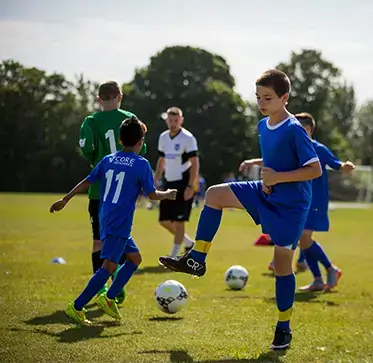
CRFC BLOGS
LATEST BLOGS & NEWSLETTERS
How Summer Soccer Camps Help Kids Build Strong Friendships
Summer soccer camps are more than developing soccer skills—they are also an excellent opportunity for kids to form lasting friendships. While the main focus may be on training, the camp environment develops teamwork, communication, and shared experiences that help children build strong and meaningful bonds with others.
1. Encouraging Teamwork and Collaboration
Soccer is a team sport, and one of its core values is teamwork. Summer soccer camps strongly emphasize working together as a unit to achieve common goals. Kids learn to communicate effectively with teammates, share ideas, and support one another during drills and games. This collaborative atmosphere encourages kids to rely on each other.
Through teamwork, children realize that their success depends on their ability to collaborate, which naturally leads to stronger bonds with their teammates. By working together toward a shared goal—winning a game or completing a drill—kids develop a sense of connection beyond the field.
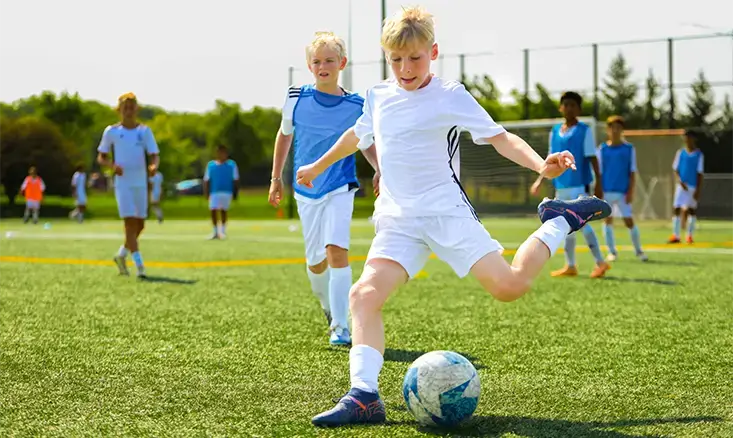
2. Creating a Fun and Social Environment
Summer camps are designed to be fun and engaging, with soccer activities that allow kids to socialize. Whether between practice sessions, at lunch, or during camp activities, kids interact in a relaxed and informal environment where they can get to know each other personally.
The shared experience of playing soccer in a fun and pressure-free setting helps kids feel comfortable around each other. As they bond over the joy of the game, they begin forming friendships, often based on mutual interests and experiences. These casual interactions can lead to strong social connections, allowing kids to build friendships outside of soccer.
3. Shared Challenges and Wins
Soccer provides many opportunities for kids to experience both challenges and wins together. Whether learning a new skill, overcoming a tough drill, or celebrating a victory, these shared moments create memories that form the foundation of lasting friendships.
When kids face challenges together, they learn how to support and encourage one another. A child who assists a teammate during a tough moment—whether in practice or in a game—will develop a stronger bond with that teammate. Similarly, celebrating achievements and victories as a team enhances the feeling of togetherness. These shared experiences help kids build trust, loyalty, and a sense of belonging.
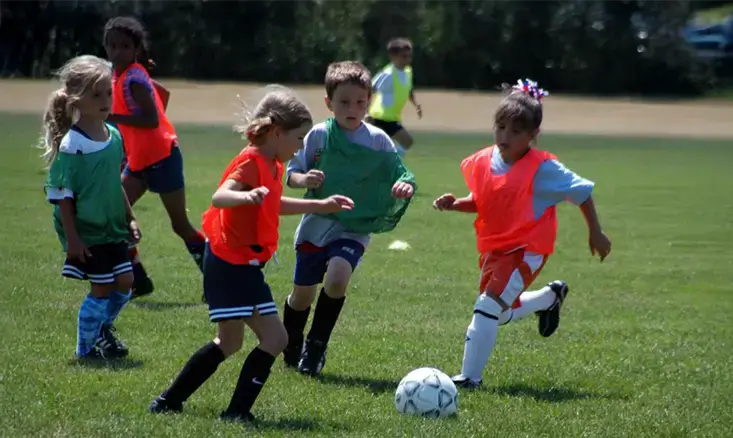
4. Diverse Interactions with Kids from Different Backgrounds
Summer soccer camps often attract kids from various schools, neighborhoods, and even regions, creating an environment where children can interact with others who may not be in their usual social circles. This diversity encourages kids to expand their social horizons and meet new friends from different walks of life.
The opportunity to make friends from different backgrounds fosters open-mindedness and social skills. Kids learn how to communicate with others who may have different personalities or experiences, which enriches their ability to form relationships that go beyond superficial interactions.
5. Developing Emotional Bonds Through Team Spirit
Soccer camps instill a strong sense of team spirit, which develops emotional bonds between players. Kids cheer each other on, offer words of encouragement, and celebrate one another’s successes. These actions build a sense of emotional connection, making the friendships formed at soccer camps more lasting.
When kids develop a strong team spirit, they are more likely to feel emotionally supported by their teammates. This emotional bond often translates into a sense of loyalty and trust that extends beyond the soccer field, helping children build lasting friendships based on mutual respect and shared experiences.
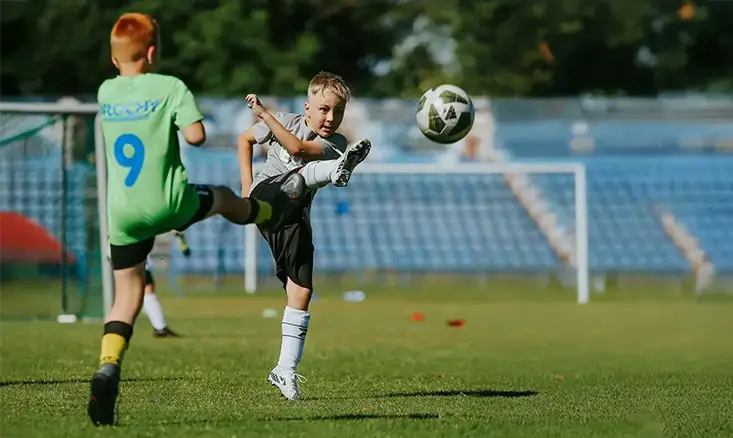
6. Improving Social Skills
Soccer camps provide a structured environment for kids to practice socializing. They interact with their teammates during activities, communicate with coaches, and work in groups, all of which improve their social skills. As kids learn how to collaborate and express themselves effectively in a group setting, they become more confident in their ability to make friends and navigate social interactions.
Being surrounded by other children who share the same interests also provides a common ground for forming friendships. The familiarity of playing soccer together makes it easier for kids to engage in conversations and make connections that can last long after the camp ends.
7. Developing a Sense of Belonging
For many children, summer soccer camps provide a sense of belonging. Kids who may feel isolated or have difficulty making friends in other settings often find a welcoming community at soccer camp. The camp experience encourages kids to find common ground, and as they spend more time together, they naturally form friendships based on their shared passion for soccer.
Being part of a team creates a strong sense of identity. Kids who feel part of something bigger than themselves, like a soccer team, often feel more comfortable and confident in social situations. This sense of belonging strengthens their friendships and helps them build connections that can carry over to other areas of their lives.
8. Encouraging Fun, Low-Stress Interaction
Because soccer camps are designed to be fun, the low-stress environment helps kids relax and be themselves. Without the pressure of schoolwork, children can interact more naturally and authentically. As a result, they are more likely to form genuine friendships based on shared fun experiences rather than forced interactions.
The playful nature of soccer games, combined with the supportive atmosphere of camps, allows kids to form connections without the pressures they might feel in other social environments. This helps them create friendships that are not only enjoyable but also lasting.
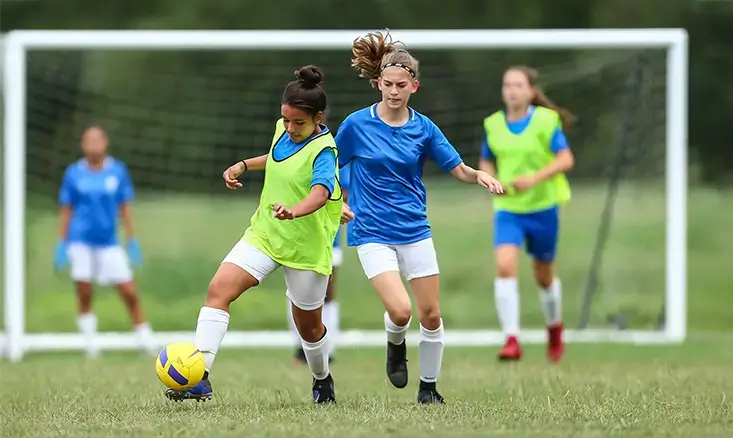
Conclusion
Summer soccer camps provide kids the perfect setting to develop new friendships built on teamwork, shared experiences, and a common love for soccer. These friendships are developed stronger at Charlotte Rise FC summer camps because they are rooted in collaboration, mutual respect, and emotional support.
FAQs
How do summer soccer camps encourage teamwork?
Summer soccer camps focus on team activities where kids work together to achieve shared goals, like winning games or completing drills. This helps them rely on and trust each other, building friendships.
Why are soccer camps good for making friends?
Soccer camps create a fun and social environment where kids play, learn, and interact informally. These shared experiences make it easier for kids to bond and form meaningful connections.
Can soccer camps help kids improve their social skills?
Yes, soccer camps provide opportunities to communicate, collaborate, and express themselves in a team setting. This helps kids gain confidence in making friends and handling social situations.
Do soccer camps allow kids to meet people from different backgrounds?
Absolutely! Kids at soccer camps often come from various schools and neighborhoods, allowing them to interact with diverse teammates and expand their social circles.
How do shared challenges and wins help in building friendships?
Facing challenges together, like tough drills or learning new skills, and celebrating victories as a team create lasting memories and strong emotional bonds among kids.

Did you find this useful?


